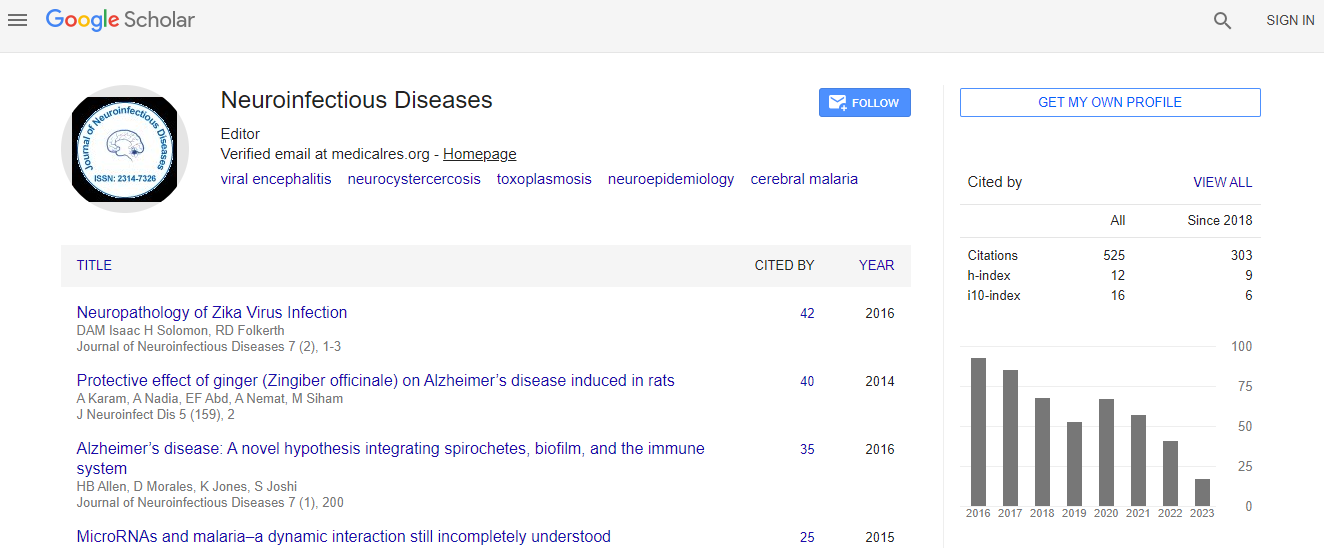Short Communication
Neurosyphilis Presenting with a Stroke-Like Syndrome
Anda Eilam*, Denis Grin, Sarit Avishay and Ronit GiladKaplan Medical Center, kyriat Ono, Israel
- *Corresponding Author:
- Anda Eilam
Kaplan Medical Center, kyriat Ono, Israel
Tel: +972 8-944-1211
E-mail: yeilam@yahoo.com
Received date: June 06, 2017; Accepted date: June 20, 2017; Published date: June 23, 2017
Citation: Eilam A, Grin D, Avishay S, Gilad R (2017) Neurosyphilis Presenting with a Stroke-Like Syndrome. J Neuroinfect Dis 8:254. doi:10.4172/2314-7326.1000254
Copyright: © 2017 Eilam A, et al. This is an open-access article distributed under the terms of the creative commons attribution license, which permits unrestricted use, distribution, and reproduction in any medium, provided the original author and source are credited.
Abstract
Objectives: Syphilis is still a public health problem in the world. Israel is a country with high immigration rates, some of the new immigrants coming from countries with a high prevalence of syphilis.
Patients: We want to report a series of 7 patients admitted to the neurology ward at the Kaplan Medical Center in Rechovot, Israel with acute strokes which ultimately were attributed to meningo-vascular syphilis.
Methods: Retrospective observational study.
Results: Six patients are presented with acute ischemic stroke and 1 with intra parenchymal hematoma. There were 6 male patients and one female. The mean age of the patients was younger than that of stroke patients in Israel. There were 6 patients of Ethiopian origin and one born in Israel. All the patients had positive VDRL and TPHA serology in the blood and all the patients that had LP performed had positive syphilis ELISA in the liver. Conclusion: Neurosyphilis should be considered among patients with stroke and the presence of more “traditional” cardiovascular risk factors should not prevent us from considering it.

 Spanish
Spanish  Chinese
Chinese  Russian
Russian  German
German  French
French  Japanese
Japanese  Portuguese
Portuguese  Hindi
Hindi 
